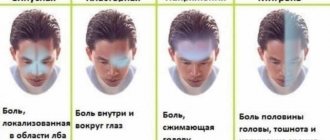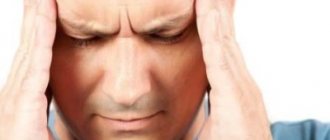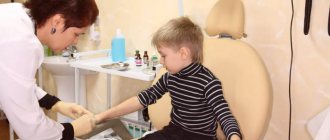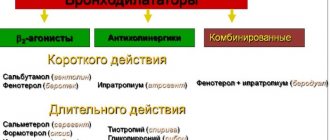Vegetovascular dystonia is a disease that develops due to dysfunction of the autonomic nervous system. The autonomic system controls the production of hormones, gastric juice, and coordinates the work of breathing and blood circulation. With VSD, the functioning of internal organs significantly deteriorates. This disease affects people of all ages and often occurs in children. The causes of the disease can be both external (stress, high loads, overwork) and internal (heredity, pathologies of the endocrine system, stomach, intestines, heart). Common conditions with vegetative-vascular dystonia are depression and neurosis. Therapy for VSD is based on an integrated approach:
- elimination of provoking external factors;
- treatment of diseases of internal organs;
- use of medications for nervous disorders.
Drug treatment includes the use of different groups of drugs: multivitamin complexes, analgesics, adaptogens. Modern medicine is increasingly using sedatives and antidepressants for VSD.
Main characteristics
The diagnoses of VSD and depression are mainly used together by medicine. Antidepressants are psychotropic medications that are used to treat depression. Their use regulates the concentration of neurotransmitters: dopamine, serotonin, norepinephrine. With the help of these substances, the electrochemical signal is transmitted from nerve cells. Normalizing the level of neuroleptics in the body improves well-being, eliminates irritability, anxiety, and apathy. Sleep and appetite are also normalized.
The main feature of antidepressants is that they prevent the breakdown of neurotransmitters (monoamines). Medical science notes that monoamine deficiency plays a major role in the mechanism of depression. Antidepressants eliminate this deficiency. It should be noted that each patient has his own “antidepressive threshold”, below which the effect of taking antidepressants does not appear.
Of course, the mechanism of action of such psychotropic drugs is not fully understood. Do antidepressants help with VSD? They are successfully used in the treatment of depressive conditions. Doctors prescribe antidepressants if exacerbation of VSD occurs more than four times a month. This manifests itself in the following symptoms:
- changes in blood pressure;
- heart rhythm disturbance;
- rapid pulse;
- increased body temperature;
- depressed breathing;
- increased fatigue;
- impaired consciousness;
- gastrointestinal disorder.
Antidepressants help increase the motor and emotional activity of the body. They cause an additional release of hormones, which improves brain functioning.
Features of attack treatment
Drug treatment should be started only on the recommendation and under the supervision of the attending physician. But for your own peace of mind, it is better to know what medications your doctor can prescribe for panic attacks.
So, all medications for panic attacks that can improve the patient’s well-being are divided into 5 groups:
- Sedatives;
- Tranquilizers;
- Neuroleptics;
- Nootropics;
- Antidepressants.
Each group of drugs for panic attacks has its own characteristics of impact on the nervous and vascular systems of the body. At the same time, antidepressants, tranquilizers and sedatives are designed to calm the weakened nervous system, antipsychotics and nootropics affect internal processes at the molecular level. The doctor will determine how to treat the disease.
The treatment regimen for VSD depends on the set of symptoms and may differ in each individual case. But in any case, it includes a complex of multivitamins, adaptogen drugs, and sedatives. They have a general strengthening effect and help the body cope better with stress.
Antidepressants are prescribed when the manifestation of VSD is at its maximum, significantly complicates the patient’s life, and conventional treatment does not give the desired effect. These drugs do not act instantly: at best, the patient will feel the results of treatment with antidepressants in 2-3 weeks.
Therefore, they are prescribed for a long course - from several weeks to months. Tranquilizers give a faster effect and allow you to alleviate the condition until the antidepressants begin to act.
Indications for the prescription of antidepressants for VSD are:
- Diagnosed clinical depression.
- Neuroses and organic disorders provoked by them.
- Panic attacks, anxiety, suspiciousness.
- Increased emotionality.
- Insomnia, increased sleepiness and other sleep disorders.
But before using antidepressants, it is necessary to undergo a comprehensive examination by a neurologist, as well as specialized specialists (gastroenterologist, cardiologist, immunologist, infectious disease specialist) to make sure that:
- the person does not have serious diseases that could lead to dysfunction of the autonomic nervous system;
- There are no serious contraindications to the use of antidepressants, given the large list of side effects and restrictions for taking drugs in this group.
The use of antidepressants in neurology is hotly debated among experts. But there is no consensus on this issue.
Some oppose such therapy, arguing that antidepressants cause a large number of side effects and can aggravate the symptoms of VSD - during treatment or after discontinuation of the drug. Other doctors consider treatment with antidepressants for VSD to be the right solution, which will allow the patient to get rid of panic attacks, neuroses, and anxiety.
It is impossible to get rid of panic attacks without an accurate understanding of the processes occurring at this moment in the body and the mechanisms that caused the development of such a condition. Every patient suffering from panic attacks must be able to control his condition, and for this he needs, at a minimum, to understand what and why is happening to him now.
Treatment of VSD is always combined and involves taking several groups of drugs, including vitamin complexes, adaptogens, and painkillers according to indications. But based on the modern vision, sedatives and antidepressants are most effective for VSD.
Classification of drugs
For VSD, the first three groups of drugs are most popular.
Monocyclic antidepressants have an effect on the reverse neuronal uptake of a transmitter such as serotonin. This biologically active substance, produced in large quantities, causes positive emotions and has a beneficial effect on the nervous system.
The drug (for example, Fluoxetine) enhances its effect on nerve endings, increases the duration of its effect, due to which the patient’s mood very quickly rises, which is so necessary for VSD, due to the patient’s depressive disorder.
Tricyclic antidepressants already affect several neurotransmitters: dopamine, serotonin, norepinephrine. The effect of taking the pills is the same, but it occurs much faster due to this combination.
The tetracyclic type of drugs inhibits the action of monoamine oxidase (MAO). This enzyme promotes the destruction of the above-mentioned mediators located in the nerve endings. With a decrease in MAO, the concentration of biologically active substances necessary for treatment increases.
Treatment of co-occurring disorders
Antidepressants are prescribed not only for vegetative-vascular dystonia, but also for the treatment of accompanying VSD disorders (panic attacks, anxiety, and so on). These include:
- panic attack - a sudden, inexplicable attack of anxiety, fear, combined with disruption of the cardiovascular, respiratory system and gastrointestinal tract;
- neuroses - a collective concept implying functional dysfunction of the nervous system, some mental disorders against the background of prolonged exposure to negative factors;
- hypochondriacal disorder is a disease very similar to VSD, based primarily on a mental disorder, greater concern for one’s own health, which subsequently leads to the formation of a clinical picture.
According to experts, in most cases - 80-90 percent - panic attacks and agoraphobia are eliminated without treatment with antidepressants, that is, when getting rid of these problems there is no need to use them. On the contrary, there are cases when antidepressants interfere with obtaining a positive result. How exactly do they interfere and in what cases do they help? Let's talk about this in more detail.
In some cases, treatment with antidepressants is indeed necessary if a person has a severe form of panic disorder with agoraphobia. This is either a very severe anxiety disorder, or uncontrollable fear, when a person is simply inadequate.
And while he is in this state, it is useless to explain anything to him, it is pointless to advise him. He simply will not be able to perceive the information that the psychotherapist will convey to him.
Naturally, in this case, treatment with antidepressants is, of course, necessary, but only in order to get the person out of a serious condition and then begin to interact normally with him.
Why do psychotherapists call antidepressants “crutches”?
At its core, treatment with antidepressants is really similar to the use of crutches for a fracture - that is, they are needed for a while to relieve the acute phase of agoraphobia, fears or very strong tension. By analogy with the same fracture, crutches are needed to relieve the load on a broken bone.
But if you don’t exercise your leg and constantly move around on crutches, it will gradually become a habit, and the muscles will atrophy over time. And as soon as a person tries to take a step without crutches, he will simply fall.
The same thing happens with antidepressants. If you take them constantly and at the same time do not work on yourself, do not change your thinking and worldview, do not destroy the mechanism of fear, then with the end of treatment with antidepressants, the relief will end - and all the anxieties, phobias, panic attacks will return again.
The mistake here is that while taking the medicine, the person gradually begins to feel good and decides that he has already gotten rid of panic attacks and increased anxiety. And even if at first he actively works to get rid of his problems, then at some point, when he gets better, he stops working.
And if you don’t work through all your fears to the end, it’s impossible to get rid of them. But still, people are probably such lazy creatures that it is easier for them to take pills than to understand that a panic attack is an isolated symptom of neurosis, that agoraphobia is also a continuation of the symptom, and that they need to be worked on.
We need to take care of ourselves
Classification of antidepressants
When treating VSD, four groups of psychotropic drugs are prescribed:
- Tricyclic: "Amitriptyline", its derivatives. These drugs are widely used in the CIS countries. Half of all antidepressants were developed on the basis of Amitriptyline. Such drugs have a profound effect on metabolic reactions in nerve cells. But because of this, it is important to avoid overdose of this type of drug. Otherwise, the patient’s mental state may deteriorate sharply to the point of complete loss of interest in life.
- Tetracyclic: “Pyrazidol”, “Lyudiomil”, “Lerivon”. The specificity of the use of these drugs is that their effect extends to certain areas of the nervous system. Therefore, they have a gentler effect on the patient. This is their advantage. But these drugs have strong side effects, which increase when combined with other drugs.
- Selective serotonin reuptake inhibitors: Cipralex, Paroxetine, Zoloft, Prozac. Today, this group of drugs is becoming increasingly widespread due to its effectiveness in combination with the mildest effects.
- Selective serotonin and norepinephrine reuptake inhibitors are the newest generation of antidepressants. So far they are not used very often, although scientific studies prove their effectiveness with minimal side effects. This group includes the following drugs: Venlafaxine, Cymbalta, Remeron. Taking them quickly relieves anxiety, disorders, and vascular dystonia.
Anxiety tranquilizers, unlike antidepressants, are drugs of different chemical groups and different effects.
Treatment of VSD with folk remedies
Folk methods of combating nervous disorders include alcohol tinctures, water infusions, decoctions and essential oils of medicinal plants. To prepare useful products, raw materials from leaves, flowers, roots and rhizomes, stems and fruits are widely used.
Medicinal plants
Medicinal plants that have a sedative effect include:
- valerian officinalis; common hawthorn; motherwort;
- Adonis spring; anise; mountain arnica;
- black elderberry; calendula officinalis; peppermint;
- mistletoe; passionflower; pharmaceutical camomile;
- common hop; swamp cudweed.
Valerian officinalis
Marsh dried grass is used in the form of an infusion. Take 10-15 g of dried herb, pour 200 ml of boiling water and set aside in a cool place for 2-3 hours. Then strain the liquid and consume 1 tablespoon 3 times a day.
Prepare a fresh drink every day. Take 30 minutes before meals. The plant will be useful in treatment and will have a moderate sedative effect.
For hypertonic VSD, a water infusion is prepared based on peppermint. To prepare, you will need 20 g of dried leaves, which you need to pour 0.5 liters of boiling water. Leave for 2 hours and then strain. Drink the resulting liquid throughout the day.
Treatment of VSD with folk remedies is a simple, accessible and effective method. But the quality of the raw materials used is of great importance. Its preparation plays a primary role in this.
Therefore, it is advisable to harvest it yourself only if you know the specifics of collecting and preparing the medicinal plants you need. It is safer to use packaged components of medicinal plants.
Antidepressants include
The use of antidepressants in the treatment of VSD depends on the severity of depression and concomitant diseases. Practitioners treat VSD with the following drugs: Remeron, Valdoxan, Pyrazidol, Selectra, Paroxetine.
"Pyrazidol" is a tetracyclic antidepressant. It should not be used together with other medications of this type. People with blood diseases and acute hepatitis are also prohibited from taking Pyrazidol. The active substance of the drug stimulates impulses for the brain. After taking it, a negative reaction may appear in the form of increased sweating, dizziness, and rapid pulse.
Since Paroxetine is a representative of the third generation, there are no pronounced side effects from its use. There may only be personal intolerance. The effect of its use occurs within a week after the start of use. It does not affect heart function or blood pressure.
The effect of the drug "Selectra" is manifested in a decrease in the number of depressive attacks, as well as a decrease in their severity. Valdoxan is recommended in cases of severe mental symptoms. The course of treatment should be two months. Rarely, side effects may occur in the form of dizziness and nausea.
"Remeron" is the latest generation antidepressant that acts as quickly as possible - in one to two weeks. Doctors prescribe it for insomnia, sudden mood swings, and suicidal tendencies. But Remeron has significant contraindications: acute kidney and liver failure, cardiovascular diseases, glaucoma, prostatitis. Taking the drug may be accompanied by nausea, causeless anxiety, and prolonged dizziness.
Mechanism of action
Antidepressants affect the functioning of the brain, or more precisely the neurotransmitters of the central nervous system: serotonin, norepinephrine, dopamine, GABA and others.
Antidepressants change the concentration or prolong the action of neurotransmitters. Under their influence, a change in metabolic processes in the brain occurs with the elimination of symptoms of VSD.
They are used to combat such manifestations of vegetative-vascular dystonia as apathy, anxiety, worsening mood, depression, and suicidal thoughts.
It is advisable to prescribe antidepressants in short courses, in small doses only at the beginning of therapy, and then switch to other medications. It is known that long-term use of such drugs changes the balance of benefit and harm towards the appearance of undesirable symptoms.
Interfering with the physiological processes of the body is unsafe. However, the improvement in the condition of those suffering from various forms of vegetative-vascular dystonia as a result of taking these medications confirms their effectiveness.
Antidepressants are part of the main group of medications for the treatment of emotional disorders in patients with autonomic dysfunction.
Features of the use of antidepressants in the treatment of VSD
Psychotropic drugs are prescribed at the time of the most severe manifestations of vegetative-vascular dystonia. It takes two to four weeks for a positive effect to appear. Tranquilizers that act more quickly can be used in conjunction with antidepressants. Over time, the proportion of antidepressants increases. The full course of therapy should last from four to six months. And it takes about one month to eliminate dependence on the medicine.
The following adverse reactions may occur during therapy with these psychotropic drugs:
- high blood and intraocular pressure;
- disturbances in the functioning of the stomach and intestines;
- pain in the head;
- disorders in the functioning of the genital organs;
- severe weakness;
- constant drowsiness.
As a rule, they occur during the first month. Combining drugs with serotonin can cause mental disorders and lead to death. To prevent this from happening, the new drug can be used no earlier than two weeks after the end of the course of therapy with the previous one. Antidepressants should be avoided if you are drinking alcohol or are pregnant or breastfeeding. The correct selection of medication depends on the VSD syndrome. Each psychotropic drug has a different effect on the cardiovascular system.
Opinions about the benefits of using antidepressants for VSD differ. This is due, on the one hand, to a truly effective effect on negative emotions and depression, and on the other hand, to a large number of side effects. Treatment of VSD with antidepressants in some cases is delayed for several years.
Need for medications
VSD is a diagnosis of exclusion. There is no such pathology in ICD-10; VSD is considered the equivalent of neurosis.
Vegetovascular dystonia is also known as neurocirculatory and vasomotor, psychovegetative neurosis, angioneurosis. The pathology is a disorder of nervous regulation due to chronic stress and has no specific manifestations or diagnostic criteria. Most often, the diagnosis is made to adolescents under 18 years of age due to anatomical and physiological changes. Symptoms of VSD include migraines, changes in blood pressure, heart problems, shortness of breath, joint and muscle pain, fatigue, and more. Sometimes manifestations of VSD are so strong that they cause a short-term crisis. Most often, patients turn to a therapist or neurologist to relieve symptoms and improve their quality of life.
Preventive actions
Both supporters and opponents of the use of psychotropic drugs agree that these medications should only be used under the supervision of a physician. Depression is a disease that often recurs. The likelihood of recurrent depression is more than fifty percent. Prevention is often carried out with a group of antidepressants if the patient has had several attacks of depression or with endogenous depression. The patient himself needs to be attentive to the signs of incipient depression. In such cases, you need to consult a doctor and take preventive measures for more than one year.
Diagnosis of VSD symptoms is carried out with the help of several specialists. Risk factors are determined, concomitant pathologies of internal organs are identified, correct treatment is prescribed, and the progress of therapy is monitored. Medical experience shows that the modern approach to the manifestations of depression based on sedatives, antipsychotics, and antidepressants is capable of completely restoring the state of the autonomic nervous system.
Types of essential drugs
Nootropics
For the tablets to be fully effective, the course of treatment must be at least 8 weeks.
Neurometabolic stimulants are a new direction in the treatment of VSD, which helps improve the cognitive functions of the brain and normalize metabolic processes in neurons. Nootropic drugs for VSD help only in cases of noticeable impairments in memory, concentration, weakened attention, or decreased skills in working with information. Aminalon, Piracetam, Noopept and other drugs are an effective means for restoring energy processes in neurons and accelerating the transmission of impulses from the brain to the periphery. Nootropic drugs are used for VSD to normalize the activity of the autonomic nervous system. To demonstrate clinical effectiveness, the course of therapy lasts at least 8 weeks.
Calming tablets
Sedatives are prescribed to calm, reduce the level of aggression and irritation, anxiety, and also to normalize sleep. Calming pills for VSD reduce emotional stress, stop cardiac dysfunction and lower blood pressure. Depending on the desired effect, you need to take the following sedatives:
- Herbal preparations and dietary supplements. Valerian root extract, passionflower, St. John's wort, Persen and Corvalol are considered relatively safe and mild medicines. To achieve an effect in VSD, long-term medication is required.
- Tranquilizers. The most powerful category of medications with a sedative effect. Many anti-VSD tablets cause a withdrawal effect when therapy is stopped. Tranquilizers are prescribed in a short course to relieve crises. The most widely used are Afobazol, Gidazepam, Medazepam and Seduxen.
- Bromine preparations. Rarely used due to the wide range of adverse reactions.
Neuroleptics
Frenolone is indicated only as prescribed by a doctor, as it has a wide range of negative effects.
"Frenolone", "Eglonil" or "Sonapax" reduce tension and reduce the degree of emotional reaction to external stimuli, and also have antipsychotic and antiphobic activity. Neuroleptics cause drowsiness. Drugs for the treatment of VSD act directly on the brain. Large doses of tablets have an antipsychotic effect, and small doses have an antiemetic and antidepressant effect. Medicines should be taken with extreme caution, as they have a wide range of side effects, including insomnia, tremors, emotional instability, heart rhythm disturbances and blood pressure fluctuations.
Cerebroangiocorrectors
Tablets for vegetative-vascular dystonia have the ability to normalize blood circulation in the brain and stop attacks of migraines, headaches, and also improve memory and reduce ICP. Combined use with antihypertensive drugs can lead to a critical decrease in blood pressure. Most often, it is recommended to take the following medications in a course of 1-2 months twice a year:
- "Cavinton";
- "Stugeron";
- "Oxybral".
Antidepressants
The medicine is an antidepressant that increases the production of joy hormones.
A group of medications exists to relieve apathy, improve the patient’s psycho-emotional state, or restore performance. Treatment of VSD with antidepressants lasts about 5 weeks. Various groups of drugs increase the concentration of dopamine, serotonin and other hormones that are involved in the formation of motivation, joy and good mood. The following medications are most often recommended for VSD:
- "Amitriptyline";
- "Pirlindol";
- "Parnat";
- "Coaxil";
- "Fluoxetine";
- "Citalopram";
- "Escitalopram."
Antidepressants are available in pharmacies only with a doctor's prescription.
Vascular drugs
The doctor will prescribe the drug to prevent headaches and dizziness.
Different groups of medications affect vessels of different sizes. The general property is to improve blood circulation in organs and tissues by increasing blood flow. At the same time, vasodilators and venotonics lower blood pressure and are therefore contraindicated for people prone to hypotension. "Validol", succinic acid and "Cinnarizine" for VSD are recommended for the prevention of headaches, dizziness and restoration of blood flow in the extremities.
A venotonic agent for VSD is useful for blood vessels, as it strengthens the walls of the veins, improves blood flow, and helps control blood pressure. List of medications that are recommended to be taken for illness:
- "Routin";
- "Vazoket";
- "Escuzan";
- "Elastin" in hyaluronic gel;
- "Detralex."
Myotropic drugs
To relieve spasms of smooth muscles of internal organs during VSD, myotropic antispasmodics were created. Tablets and injections lower blood pressure, fight migraines, bowel and bladder disorders, and also relieve pain of various localizations. Myotropic drugs also reduce muscle tone, but not as much as muscle relaxants, and therefore their use does not threaten cardiac and respiratory arrest. To combat spasms and pain during VSD, it is better to take the following medications:
"Drotaverine" is designed to relieve spasm of smooth muscles in pathology.
- magnesium sulfate;
- "Minoxidil";
- "Drotaverine";
- "Courantil";
- papaverine hydrochloride.
Vegetative correctors
Vegetotropic drugs have a complex effect on the activity of the autonomic nervous system, which controls the activity of the heart, gastrointestinal tract, kidneys, respiratory tract, endocrine system and other internal organs. The medicine for VSD is used for increased irritability, insomnia, and menopausal neuroses. To treat neurocirculatory dystonia (NCD), the following medications are prescribed:
- "Bellataminal";
- "Sonapax";
- "Dormiplant".
Pharmacy vitamins
In combination with other pharmaceuticals, vitamins for VSD significantly improve the general condition. One of the causes of the pathology may be a lack of cyanocobalamin, folic acid or tocopherol. Vitamin complexes help normalize the metabolism of cells, including nerve cells, and increase stress resistance, increase body tone and improve mood. The following new pharmaceutical drugs have proven themselves well:
“Ascorutin”, together with other medications, will significantly improve your overall well-being.
- "Milgamma";
- "Neurovitan";
- "Ascorutin";
- "Vitrum";
- Advanced Multi Mineral;
- Vitabolic.
The best combination against VSD is vitamin-mineral complexes and short-course nootropics.
Other groups
It is recommended to take metabolic drugs during VSD to restore the energy balance in cells, reduce symptoms of mental and physical exhaustion, and increase performance and endurance. You can take the following medications:
- "Meldonium";
- "Riboxin";
- "Metamax";
- "Trizipin";
- "Panangin";
- "Celebis";
- "Elkar".
A new drug based on ginkgo biloba has proven itself well in the treatment of VSD. The drug improves memory, normalizes mood and helps cope with causeless fear, and also normalizes sleep. Adaptogens increase resistance to various external irritants and accelerate recovery from stress and overexertion. Ginseng, Eleutherococcus, Leuzea and Cordyceps are popular.
Negrustin for VSD
Combined antidepressant based on St. John's wort. Has anxiolytic, sedative, antidepressant effects. Effective for use in VSD. Due to its mild action, it is less likely to cause adverse reactions.
The product eliminates the following manifestations of VSD:
- panic attacks;
- anxiety;
- obsessive thoughts;
- severe asthenic syndrome (weakness, sleep disturbance, fatigue);
- fear of death;
- excitement against the background of pain of various etiologies.
Among the side effects of Negrustin, allergic manifestations such as itching, redness of the skin, urticaria and photosensitivity are most often observed.
Choice of antidepressants
Major drug classes include:
- Tricyclic antidepressants.
- Related antidepressants.
- Selective serotonin reuptake inhibitors (SSRIs).
- Monoamine oxidase inhibitors (iMAOs).
Some antidepressants cannot be included in this classification.
There is little difference between the classes of antidepressants presented in terms of effectiveness. Often, the choice of drug is based on the patient's individual needs, including the presence of comorbidity, existing therapy, risk of suicide, and previous response to antidepressant exposure. An interval of 2 weeks may be required between courses of antidepressants. This may be a reason to use electroconvulsive treatment, especially in severe depression where delaying anti-anxiety treatment is dangerous or intolerable.
During the first few weeks of antidepressant treatment, there is an increased risk of agitation, anxiety, and suicidal ideation.
SIPS are better tolerated and safer in overdose than other drugs from other classes of antidepressants. Drugs from this class are mainly considered as primary treatments for depression in VSD. In patients with unstable angina or recent myocardial infarction, sertraline is considered safe.
Tricyclic antidepressants have similar effectiveness to TIPS, but their use is stopped most quickly due to the development of side effects; toxicity from overdose and other health problems. TIPS are less sedative and have fewer antimuscarinic and cardiotoxic effects than tricyclic antidepressants.
MAO inhibitors have been reported to have dangerous interactions with certain foods and medications. They must also be ordered in advance by the physician who will administer the appropriate prescription to the patient.
Although anxiety is often present in depressive illness (and may be a symptom in SUD), the use of an antipsychotic or anxiolytic may mask the true diagnosis. Therefore, anxiolytics or antipsychotic drugs should be used with caution in depression. Moreover, they are useful auxiliary substances in the treatment of agitated patients.
The combination of antidepressants with antipsychotics under specialist supervision may also be necessary for patients with depression and psychotic symptoms.
St. John's wort (Hypericum perforatum) is a popular medicine widely used to treat a variety of ailments, including mild depression. It is not available by prescription and is not specifically recommended for depression because St. John's wort may induce drug-metabolizing enzymes. Several important interactions have also been identified between St. John's wort and conventional medications, including conventional antidepressants. Additionally, the amount of active ingredient varies between different St. John's wort preparations and from one to another, which may alter the degree of enzyme induction. If a patient stops taking St. John's wort, concentrations of interacting drugs may increase, resulting in toxicity. Therefore, preparations from St. John's wort for the treatment of depression in VSD should be taken strictly as prescribed by the doctor.
Fluoxetine for VSD
Fluoxetine is a representative of the SSRI group. Eliminates symptoms of vegetative-vascular dystonia and panic attacks, relieves anxiety, fear of death, and nervous tension.
Under the influence of Fluoxetine, the severity of peripheral signs of vegetative-vascular dystonia (tachycardia, chest discomfort) decreases. Due to this effect, the medication is often used to treat autonomic dysfunction. The effect of therapy appears after 1-2 weeks of regular use.
Typical adverse reactions during treatment with Fluoxetine:
- weakness;
- headache;
- fast fatiguability;
- unmotivated aggression;
- suicidal thoughts;
- dry mouth;
- loss of appetite;
- nausea;
- decreased sex drive.
The medicine is prescribed by the attending physician. Fluoxetine is contraindicated in patients with individual intolerance to the main component of the drug. It should not be used by pregnant women, nursing mothers, patients with diabetes, people with suicidal tendencies, or epileptic conditions.
Analogues of Fluoxetine include Deprenon, Portal, Prozac and others.
Fevarin for VSD
Fevarin is another representative of the SSRIs. It has the same characteristics as its other analogues. The active substance of the drug is fluvoxamine.
This remedy is used only in patients with VSD who note severe manifestations of depression. Common side effects:
- dyspeptic disorders (dry mouth, nausea, loss of appetite);
- worsening emotional lability;
- decreased libido.
The drug is contraindicated in children under 18 years of age, patients who have previously taken MAOI, pregnant women and nursing mothers.
Tranquilizers for VSD
In addition to traditional antidepressants, in rare cases, tranquilizers and antipsychotics are used to treat VSD (in severe cases). Neuroleptics are psychotropic drugs that are used in patients with mental disorders (for example, schizophrenia), and are almost never prescribed to people with a functional disorder of the ANS.
For VSD, anxiolytic (anti-anxiety) drugs are often prescribed. They improve the well-being of a person with autonomic dysfunction and normalize his emotional background.
Typical representatives of this group of medications:
- Relanium (Diazepam);
- Rudotel (Medazepam);
- Nozepam;
- Lorazepam;
- diphenylmethane derivatives (for example, Atarax);
- Afobazol and others.
Anxiolytics have a sedative, hypnotic and muscle relaxant effect on the human body, preventing the development of seizures. Helps cope with anxiety, constant fear and emotional stress.
Due to the direct effect on the nervous system, the use of tranquilizers should be supervised by a doctor. The large number of adverse reactions has caused a reduction in the use of these drugs in patients with VSD.
Having discovered obvious symptoms of VSD. namely: sweating, feeling hot, increased blood pressure, excretion of large amounts of light-colored urine, patients often begin self-medication. However, a doctor must make a final diagnosis and prescribe treatment - self-administration of antidepressants is dangerous to health.
Source: distonija.ru









